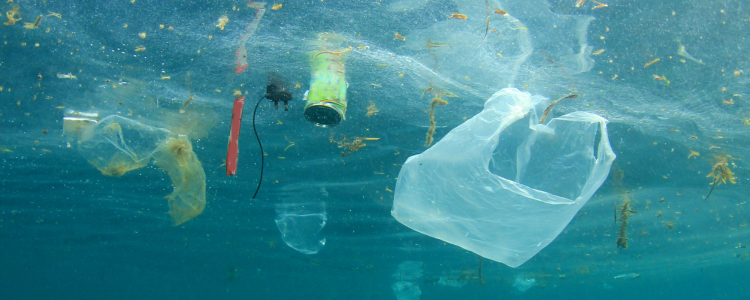
You haven't missed it: environmental pollution is reaching worrying levels today. We know the consequences for the planet and human health. But science is increasingly interested in the link between pollution and fertility. Does our ecosystem directly impact our ability to conceive? Let's take a closer look at this issue, its alarming truths, and our tips for best protecting your fertility.
Gametes: The Basic Unit of Reproduction
The exact link between fertility and pollution remains somewhat obscure. Scientists are beginning to take a serious look at the subject, but they still have much to discover. Here's what we already know, though.
Impacts of air pollution on fertility
According to a study published in Cairn , we are increasingly moving towards a sad conclusion: pollution is impacting our ability to conceive children. The cause? Organic pollutants (hydrocarbons, found in smoke, for example), atmospheric pollutants, and metallic pollutants (such as copper and lead).
The problem with these chemicals is that they negatively affect our hormones and can damage reproductive cells. In both women and men, the results are damage to male gametes, and egg production is disrupted. These pollutants can also cause stress to these same cells. As a result, they can damage sperm DNA and affect future generations. Nothing very encouraging, in short.
This article may also interest you: How do you know if you are fertile in men?
Harmful effects of pollution on gametes
Science is therefore already able to affirm it: in our reproductive health system, the first victims of pollution... are the gametes.
According to a study by Public Health France , pollutants can cause several problems with human fertility. In men, this can result in:
- a decrease in sperm motility;
- a loss of quality;
- congenital diseases.
Female fertility is also impacted by:
- an increase in polycystic ovaries;
- an increase in miscarriages;
- a disruption of the menstrual cycle.
Both sexes may also experience a decrease in sperm and egg production and/or early puberty, as well as a higher risk of developing chronic disease in adulthood.
The effects of pollution on fertility around the world
Around the world, people are beginning to notice how harmful the effects of pollution on fertility are.
China: An Alarming Case Study
China, in particular, presents a worrying situation. A recent study published in JAMA (Journal of the American Medical Association) explains that researchers analyzed the gametes of more than 33,000 Chinese men. Their finding? Air pollutants reduced the sperm's ability to move properly. The results: the overall decline in sperm quality appears to be caused more by environmental factors than genetics.
The rest of the world: Worrying trends
Although China is one of the most polluting industrialized countries on the planet, it is (obviously) not the only one concerned by this issue. In a survey conducted on male fertility, the media outlet GQ highlighted an alarming fact: boys produce half as much sperm as their grandfathers. The World Health Organization points out that 50% of infertility cases in the world population could be explained by factors solely related to the man. And therefore, among other things, by this poor quality of gametes.
Until what age is a man fertile? We tell you everything!
The culprits: Toxic components and their effects
So, who are the culprits behind such a drop in fertility? Well, there are many in the dock. Here are a few.
Endocrine Disruptors: Invisible Enemies
Endocrine disruptors are chemicals that interfere with our hormones and impair fertility. These include:
- bisphenols;
- dioxins;
- paracetamol;
- phthalates.
The problem is that they take up a lot of space in our daily lives. Examples include food packaging, cosmetic products, and toys. How do they work? It's simple: they mimic (or block) natural hormonal actions. And, consequently, lead to reproductive health problems.
Also beware of the "cocktail effect," or simultaneous exposure to several chemicals. In these cases, the negative impact is amplified. We strongly recommend choosing products designed without endocrine disruptors. Moom , for example, offers organic, vegan, and certified endocrine-disruptor-free cosmetics. This will help reduce the chemicals lurking in your toiletry bag.
Other pollutants and their potential impacts
Other culprits of declining fertility? For example, consider fine particles (found in air pollution). Add to that pesticides (many found in the food industry) and heavy metals. That's a lot! Yes, all these molecules also have consequences for our reproductive health, since they affect the quality of gametes. And they increase the risk of fertility-related diseases.
(Simple) measures to adopt
Okay, let's end this article on a more optimistic note. Don't worry! To protect yourself (as much as possible) from pollution and protect your fertility, you can take a few simple steps.
Here is a non-exhaustive list, to be consumed without moderation:
- Choose walking. Or cycling. You'll be doing good for your body, and the planet.
- Choose eco-friendly cosmetics and cleaning products. You will reduce your exposure to endocrine disruptors.
- Ventilate your home. You will reduce the concentration of indoor pollutants.
- Filter your tap water. This will remove any heavy metals that may be present in it.
- Reduce your use of plastic, which is often full of chemicals. Instead, opt for glass or stainless steel.
- Try to eat organic and local if you can. You'll be consuming food that's less exposed to pesticides. And you'll be supporting less polluting agriculture.
- Take a course of fertility supplements to boost your chances of conceiving.
- Finally, adopt a healthy lifestyle and limit your alcohol consumption! There is a real link between the liver and fertility . So take care of it.
Yes, we grant you: these gestures may seem trivial in the face of the environmental challenges we face. But their cumulative effect can truly make a difference. And help you preserve your reproductive health at the same time.
The impact of pollution on our overall health, including female and male infertility, remains a huge issue. But recognizing it also highlights our collective ability to positively influence the future. So let's continue to educate ourselves. And adopt simple but responsible behaviors. A guaranteed virtuous circle: you'll be taking care of your fertility, and—on your own level—the planet!









